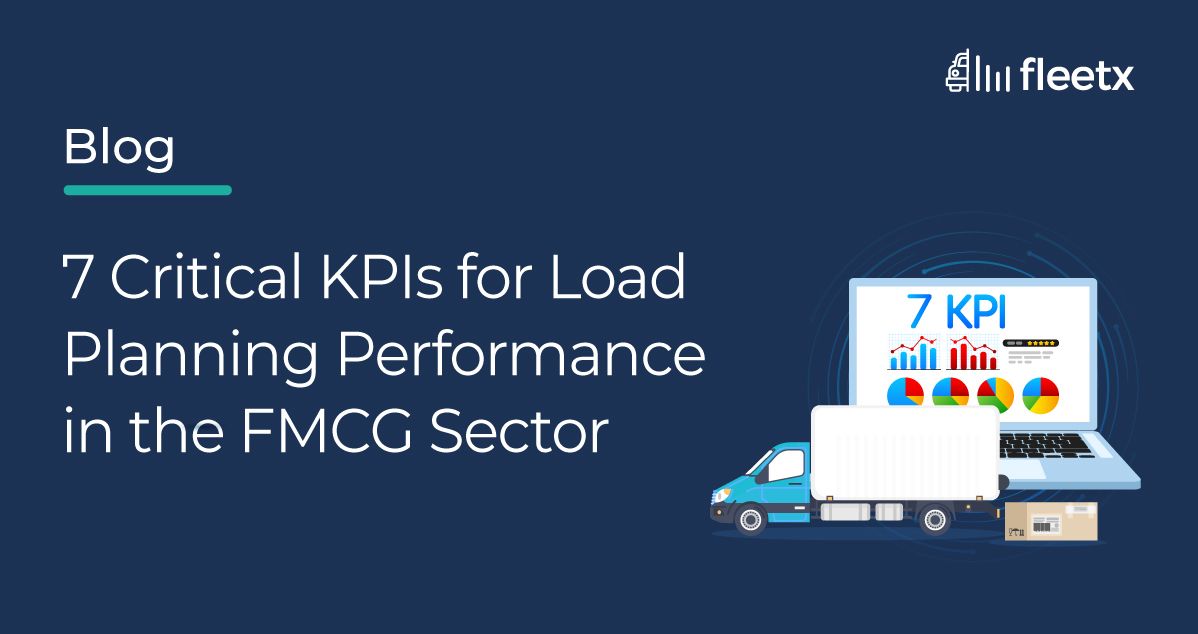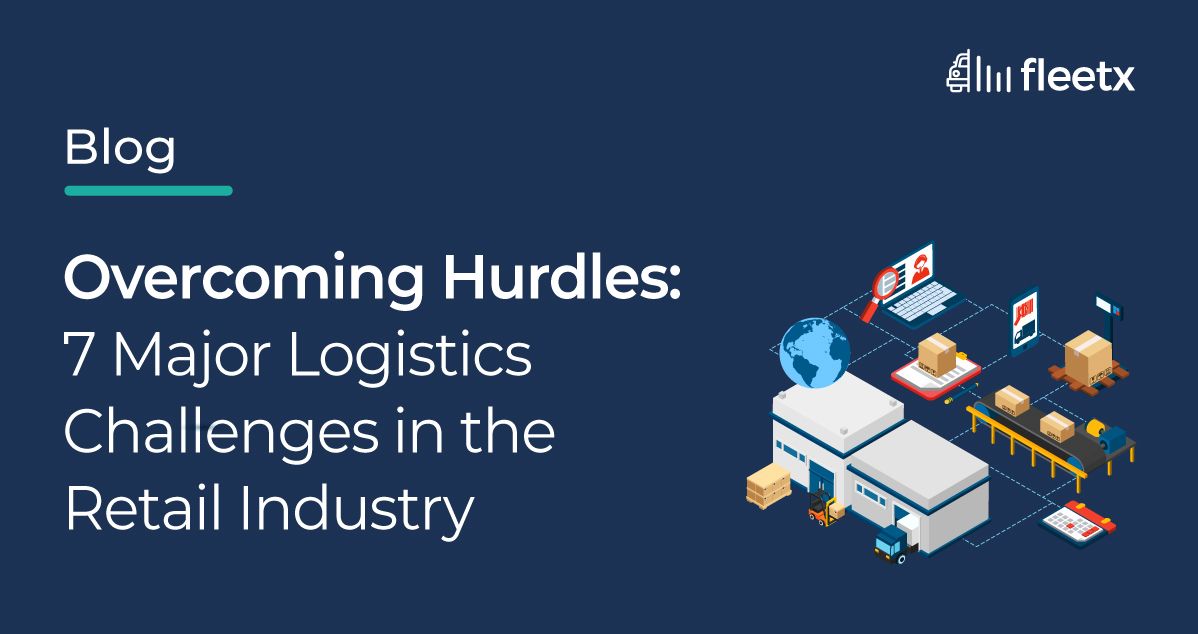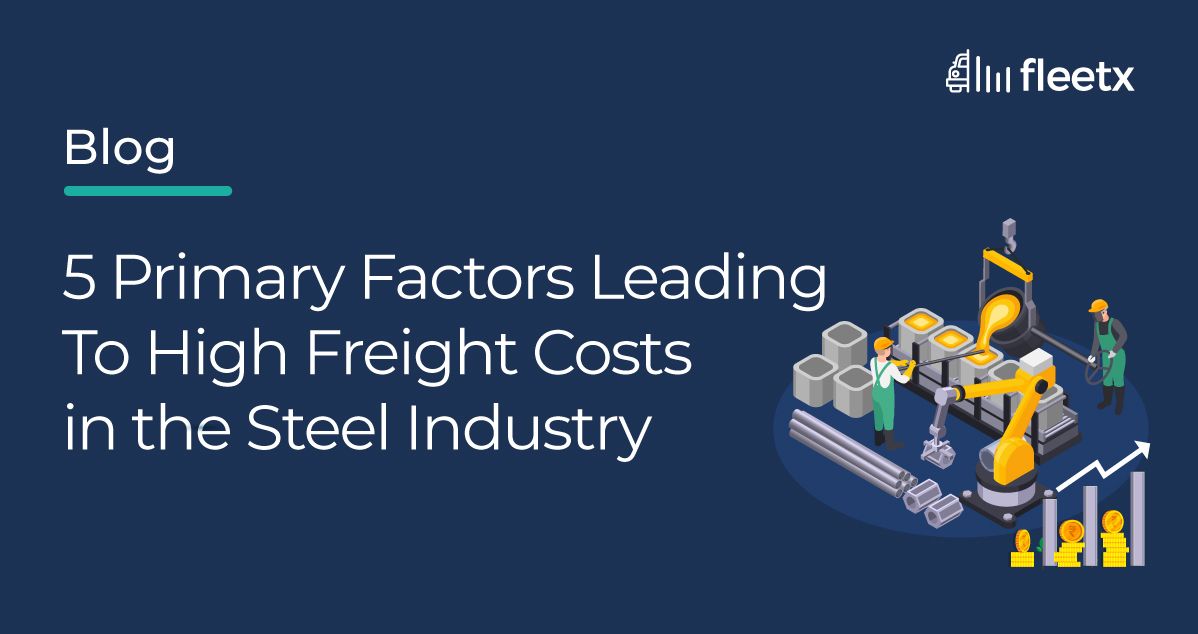
As the name suggests, in the dynamic world of Fast-Moving Consumer Goods (FMCG), efficient fleet management is critical to keep the supply chain moving. It is not just about delivering products on time; it is about doing so cost-effectively and resourcefully. To achieve this desired level of efficiency, companies are turning to smart technology solutions that provide real-time insights to facilitate data-driven decisions. One area where these smart solutions are really proving to be a game-changer is load planning.
In this article, we'll delve into the 7 Key Performance Indicators (KPIs) for load planning in FMCG and how technology solutions can help you optimize your fleet management.
Problem Identification
There are several moving parts in the FMCG industry, and the challenges are indeed unique. The constant push for efficiency is driven (among several factors) by high consumer demand, the fragility of perishable products, and extremely tight delivery schedules. Failing to meet these demands is not an option. It can lead to a cascade of consequences – financial losses that cut into profits, a line of dissatisfied customers, and operational costs that keep growing until the challenge is solved.
The traditional methods of load planning, though once effective, often fall short in today's dynamic FMCG landscape. They are time-consuming and lack the precision required to navigate the intricate web of FMCG logistics. This is where innovative technology solutions step in, revolutionizing the way load planning is carried out. These solutions bring agility, accuracy, and efficiency into the mix, ensuring that you not only meet your FMCG logistics challenges head-on, but also stay ahead of the game.
The Solution
To tackle these challenges head-on, companies are turning to smart technology solutions for enhanced fleet management. These solutions offer real-time visibility, data-driven decision-making, and automation, making it easier for FMCG companies to meet their load planning goals. Let us explore the 7 key KPIs that are essential for FMCG load planning performance:
1. On-Time Delivery:
Meeting delivery deadlines is crucial in FMCG, where consumer expectations for product availability are high. Technology solutions provide real-time tracking and route optimization, ensuring that your fleet reaches its destination on time, every time.
2. Fuel Efficiency:
Fuel costs are a significant part of operational expenses. Smart technology solutions can monitor driver behavior, optimize routes, and reduce unnecessary idling, resulting in substantial fuel savings.
3. Vehicle Utilization:
Maximizing vehicle capacity is vital in FMCG. Technology solutions offer load planning tools that help you make the most of your available space, reducing the number of trips required.
4. Order Accuracy:
In FMCG, order accuracy is non-negotiable. Technology solutions provide tools for better order management, reducing the chances of errors and minimizing costly returns or reshipments.
5. Driver Productivity:
Improving driver productivity is a key performance indicator in load planning. Technology solutions offer real-time data on driver performance, enabling you to make informed decisions on training and performance improvement.
6. Safety and Compliance:
Compliance with safety regulations is essential, especially in the FMCG industry. Technology solutions provide tools to monitor driver compliance, ensuring that your fleet operates safely and avoids costly fines.
7. Cost per Kilometer:
Understanding the cost per mile is essential for cost-effective load planning. Technology solutions can help you track and analyze expenses, identifying areas where cost reductions can be achieved.
The Role of Smart Technology Solutions
Smart technology solutions are the key to achieving these KPIs. They offer a range of features and benefits that empower FMCG companies to optimize load planning and fleet management. These are some of the features on offer:
- Real-time Visibility: Monitor your fleet's location and performance in real time, allowing you to make quick, informed decisions.
- Route Optimization: Smart technology solutions can suggest the most efficient routes, helping you save time and fuel costs.
- Automation: Automate routine tasks such as order processing, reducing human error and freeing up time for more strategic decisions.
- Data Analytics: Harness the power of data to identify trends, make informed decisions, and continuously improve load planning performance.
- Integration: Integrate your smart technology solution with other systems, such as your ERP or CRM, for a seamless flow of information.
The Way Forward
Efficient load planning performance is one of the critical pillars of the FMCG industry. With the challenges it faces, including high demand, perishable products, and tight delivery schedules, leveraging smart technology solutions is crucial. The 7 key KPIs mentioned in this article provide a roadmap for improving load planning in the FMCG sector, and smart technology solutions are the tools that can help you reach these milestones. By investing in the right technology, you can optimize your fleet management, reduce operational costs, and ensure that your products reach customers on time, every time.
Don't just keep up with the fast pace of the FMCG industry - lead it with data-driven decisions and smart technology solutions!


